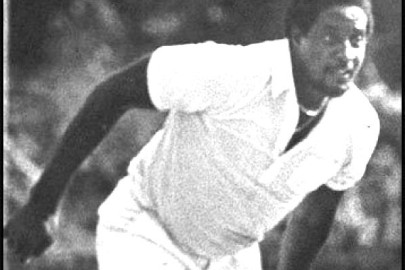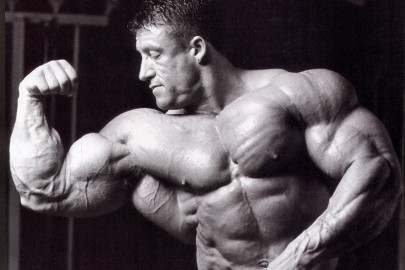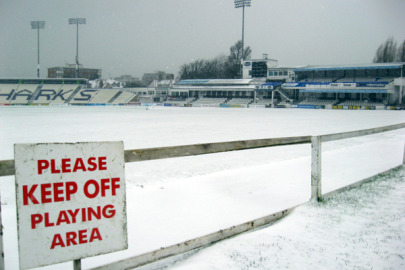Of course, now that all the other home nations have been knocked out of the Rugby World Cup, we Brits and Irish are all Welsh as far as rugby’s concerned. It therefore behoves all of you out there to learn more about the unpredictable opposition we’ll be facing in Saturday’s semi-final…
Wales’s defence coach, the pugnacious but perspicacious Shaun Edwards (definitely not above), is as puzzled as the rest of us as to what his team will face on Saturday:
I wouldn’t have any idea about France.
Will they persist in their inconsistency? Or change tack by suddenly becoming consistent? He can’t make his mind up.
Les Bleus are surely one of the most enigmatic top-level teams in world sport: capable of beating anyone on their day but never really sure of when their day is. Flair exchanges itself for brittleness; hardness for brutality; dynamism for chaos – mostly with little discernible reason other than a bit of pressure from the opposition. And vice versa, of course (but with no discernible reason whatsever). They’re a mixed-up bunch and they always have been.
The game was first promoted in late-19th century Paris by a group of gentlemen, among them the founder of the modern Olympics, Baron Pierre de Coubertin, who were enamoured of the British Empire’s achievements and believed organised sport was one of the secrets of its success. However, something strange happened in the translation of a game so imbued with manly, rugged and self-effacing virtues.
We find in this fascinating cultural history of French rugby union a description of the first rugbymen:
As students whose primary sporting interest was in running and jumping, and as either aristocrats or members of the haute bourgeoisie, they were ill disposed to both the physicality and the anonymity of rugby’s forward-play, in particular. Indeed, some players went so far as to refuse to participate in the union game’s most distinctive feature, the scrummage, or otherwise to compromise their dignity on the field, for instance by tackling opponents below the waist. In a game characterized first and foremost by physical contact, they sought precisely to avoid getting to grips with their fellow players, using feints and side-steps to preserve their splendid isolation on the pitch, valuing above all the solo dash for the opposition’s try-line.
This rather fey enthusiasm for elusiveness – le rugby-panache – became somewhat uneasily yoked to more earthy virtues as the game caught on in the South-West. Latin machismo, peasant robustness and a determination to defend the local terroir combined to produce a rugby culture not unlike that of the Welsh valleys: le rugby de tranchées (i.e. of the trenches).
An emblematic figure was one Jean ‘Le Sultan’ Sébédio, formerly an outstanding player who took up coaching with national success in the inter-war period:
Having already lost a good deal of his vitality as a result of frighteningly excessive drinking, he cultivated his persona by sitting in the middle of the pitch with a long whip and a wide sombrero, making his players run around him like circus horses.
However, it was his penchant for violence and the uncompromising nature of his local allegiance that were most fondly recorded by the chroniclers of French rugby:
Sébédio kept a human skeleton hanging in the referee’s changing room, with a whistle stuck between its jaws, and would inform the concerned official that it was ‘nothing to worry about, just the last referee to give a penalty against [his team]’.
Threats weren’t idle: confrontations could be exceptionally violent with at least one player, Gaston Rivière, dying on the pitch of injuries inflicted in a grudge match. The phenomenon even had its own morbid term: le rugby de muerte (a Spanish-inflected rugby of death…).
Remember where we came in? Epicene players who thought all the grappling physicality of the game really rather gross. From there to rugby as bare-handed murder. At the top of this post is the French team’s current left winger Alexis Palisson posing for a gay magazine. Is it at all surprising they’re an unpredictable lot?
(Excerpts are all from the aforementioned and fascinating French Rugby Football: A Cultural History; if you’re interested in this subject you might also enjoy this post of mine).












we had a french teacher as a rugby coach at school and he had played a lot of top level rugby in the south west of france, we were appalled and impressed in equal measure by his frequent demonstrations of french ‘rucking technique’ which seemed to involve all sorts of dastardly eye gouging and covert ultraviolence…
Thank you Gaw; at last I understand the background to French fleet-footedness: that joy, not to say relief, in executing the perfect dummy, the feint, the drop of a shoulder, the swivel of the hips, the blistering acceleration as opposition hands grasp for buttocks, thighs, the waspish waist, but only succeed in finding fresh air. And the pattern was set all those decades ago by the first rugbymen. I wondered why at every scrum against England, there was French hesitancy. It seemed to be a case of “After you, Claude” “No, after you Philippe”
What a completely enjoyable post: the skeleton had me laughing out loud. I didn’t know anything about the origins of French rugby, so this is all revelation, and quite some revelation too.
Just confused about one thing. The Welsh play the French every year, don’t they? So it can’t be THAT mysterious a match. Is it a case of just not knowing “which France is going to turn up” i.e. will it be a walkover for the Welsh or are they going to have to put some effort in to make the Final?
It’ll be interesting to see if Scotland turns Welsh for the occasion, given the deep links with France over the years. I expect so, especially given what a pleasure the Welsh are when they come to Edinburgh every other year.
Worm, I hope ‘his frequent demonstrations’ weren’t conducted on a terrified Molesworth Minor.
John, I see your sympathies are with the mousquetaires! But surely the French front row is almost always populated by horny-handed peasant types?
James, I suppose the way to characterise France’s performance over time is to say they achieve a very high average level but that this disguises some peaks and troughs that the other top teams hardly ever reach.
BTW as well as French rugby’s art angle (explored in the post I linked to at the bottom) there are others which are quite thought-provoking. For instance, French rugby teams without a Napoleon/de Gaulle figure in charge somewhere tend to be about as coherent as one of the fleeting governments of the Third Republic. It’s a microcosm of a peculiar and immemorial characteristic of the French Republic: that it only functions well when it has a king in place.
I haven’t read your post, Gaw, but must compliment you on your excellent choice of photograph:-) Beats Mike Tindall any day.
We have one very keen supporter of Les Bleus in this house (not me). She thinks the number on fly-half Morgan Parra’s shirt is a mark out of ten for handsomeness (fly-half wears ten, btw).